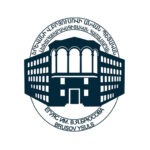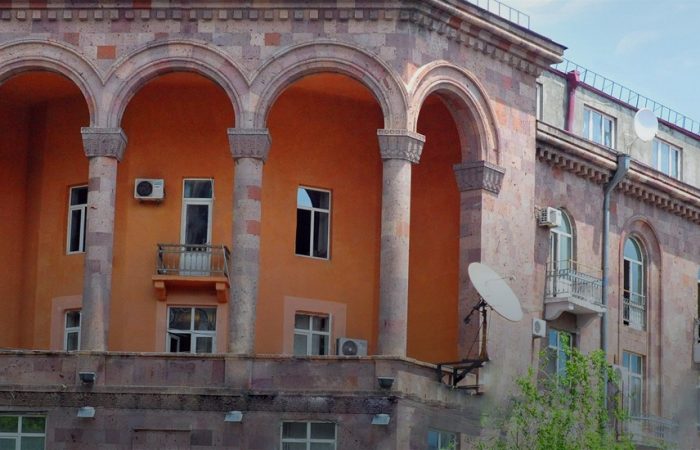Currently Empty: AMD0

Brusov State University
Description
The history of Brusov State University (BSU) is a long story of establishment, recognition and development. For over eight decades the university has educated progressive generations that have brought their invaluable contribution to the fields of Language Education, Pedagogy, Philology, Cultural Studies and Social Sciences both in Armenia and worldwide. The parade of Brusov alumni is led by heroes of the USSR and Artsakh, scientists, honorable teachers, managers, clergymen, diplomats, politicians, military servicemen, respectable artists and other renowned specialists. One of the greatest acknowledgements of the university’s activity is the “Order of Friendship of Peoples,” awarded in 1985 for training qualified staff and for the university’s contribution in the development of science.
To this day, being truthful to its mission, BSU is training qualified specialists for our country in the fields of humanities, social sciences, pedagogy and hospitality.
Since the day of its establishment, the institution has constantly developed and expanded its scope of professional fields and domains: hence, the university name has respectively undergone various changes – from Pedagogical to Foreign Languages, and today it is already the University of Languages and Social Sciences. Since 1962, the university has remained faithful to the honor of being named after the prominent Russian poet Valery Brusov, thus becoming the globally recognized “brand” of “Brusov University”.
Created in 1935 as a two-year pedagogical institution for training Russian language specialists, BSU was the first to undertake the development of foreign language teaching methodology and promoted its practical implementation in Armenia. Over years, BSU has added to the list of foreign languages taught – Russian (1935), German (1936), English and French (1937), Spanish (1963), Italian and Bulgarian (1996), Greek (1997), Farsi (2000), Polish, Serbian, Ukrainian, and Dutch (2005), Korean (2006), Chinese and Romanian (2007), Hindi, Arabic, and Portuguese (2009), Japanese, Turkish, Georgian (2010), and Hebrew (2019):
Back in 1963, the higher education institution adopted a policy of multilingualism, introducing second and since 2017 third foreign language instruction, thus creating more opportunities for learning foreign languages for both formal and non-formal education.
Since 1966, the university has employed native-speaker lecturers, invited from the countries of studied languages, along with esteemed and qualified local teaching staff.
BSU launched its international cooperation in the Soviet era, too. Today the university collaborates with 85 leading universities, academic and research centers, international and academic organizations from more than 25 countries conducting various educational, scientific and exchange programs.
A number of important episodes of BSU history are worth mentioning below.
Since the 1950s, the university has initiated projects for creating foreign language teaching and learning literature. From 1962 to 1965, English-Armenian, German-Armenian and French-Armenian dictionaries compiled by the lecturers of the university were published, creating a methodology of dictionary compilation and thus establishing the culture of Lexicography in Armenia. Today, BSU lecturers are authors of majority of foreign language textbooks and teachers’ guides and manuals for general schools and higher education institutions in Armenia.
Known for its technological advancement and modern language laboratories, the university introduced a series of foreign language TV courses for Armenian schools back in 1980, thus becoming a pioneer in establishing distance learning traditions in Armenia.
Since 1962, Brusov studies has been an important direction of BSU activities. The Center of Brusov Studies, with its long-term scholarly experience, continues to systematize the activities of leading world scholars, conducting research in the field. The university takes pride not only in the Center, but the rich collection exhibited in the Valery Brusov Museum housed at BSU. Today, it is the first organization in Armenia to cooperate with Google Cultural Institute and the only one, the virtual collections of which are available on the Google Arts and Culture digital platform.
The multilingual and significant scientific and research potential of BSU has been developing in line with international tendencies. Currently, the University has made its research output accessible on a digital platform which hosts both new scholarly products and research and scientific corpora, collected over decades.
After the independence of Armenia, in response to the demands of the society and the labor market, BSU has modernized its traditional professions (Foreign Languages, Translation, Philology, Linguistics and Pedagogy) and introduced a set of new professions in the field of Social Sciences (Journalism, Public Relations (PR), Political Science, International Relations, European Studies, Intercultural Communication, Area Studies, IT and Linguistics, Management, Service). The introduction of the new Social Science disciplines served as a basis for the reorganization of the institution into a university of languages and social sciences.
After Armenia joined the Bologna Process in 2005, the three-tier education system (BA, MA, postgraduate/PhD programmes) was introduced to BSU. BSU established its Career Center and initiated large-scale University-wide processes for updating BSU academic programmes to ensure alignment with the National Qualifications Framework. BSU also undertook the introduction of university quality assurance system. The University gained momentum in internationalization. Independent student bodies were established.
Inheriting rich traditions from the past, BSU is consistently moving towards the realization of its strategic goals, conceptualized in the broader context of political and education reform. Currently BSU offers a wide array of academic programmes. It trains specialists of various professions of high demand in humanities, social sciences, tourism and service. Multilingual and multicultural education continues to be the advantage of BSU graduates in the competitive labor market.
In the era of modern technology, the core principle of education is to provide students with knowledge and information, teach them to learn, develop new skills, be creative, make quick decisions in an innovative environment.
The introduction of interdisciplinary professions, such as Education-related disciplines (Computer-based Testing, Assessment and Pedagogy), Simultaneous Interpretation (ITC and Translation), Computational Linguistics (Computer skills and Linguistics), Culture and ITC, Digital Humanities, Information Management constitute a crucial aspect of innovations, incorporated in the conceptual framework of BSU’s development to address new challenges.
The vision and development strategy of Yerevan Brusov State University of Languages and Social Sciences are based on its rich traditions, success stories, competitive advantages and are aimed at turning new challenges into opportunities.



